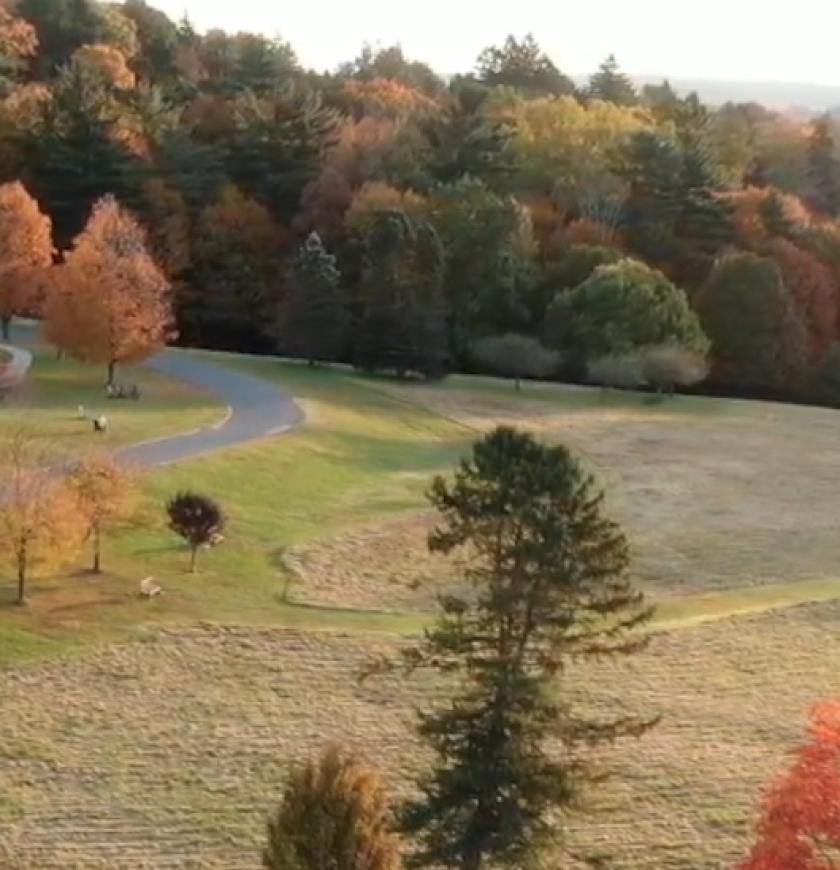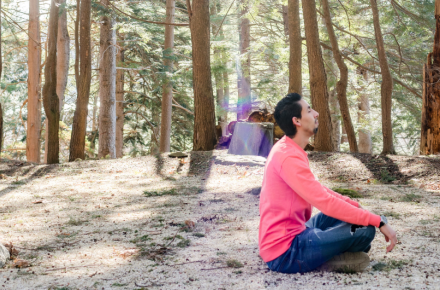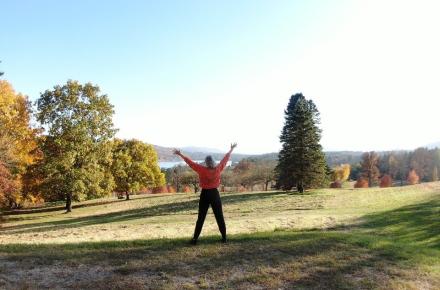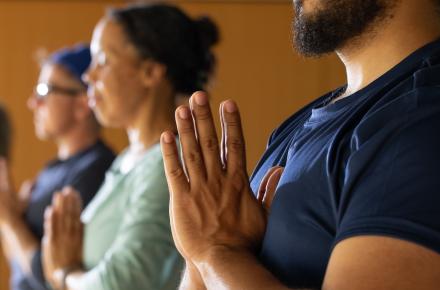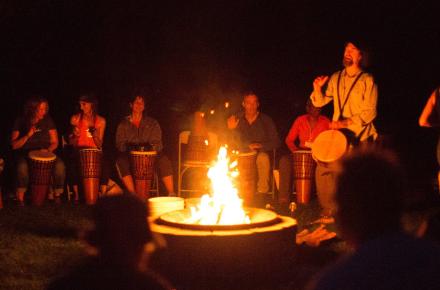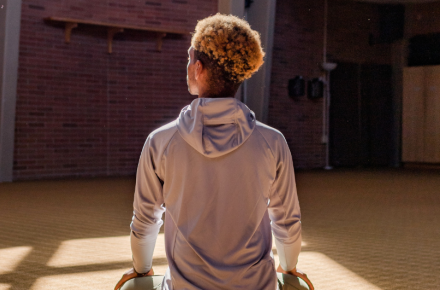The Power of Love: A Q&A with Krishna Das
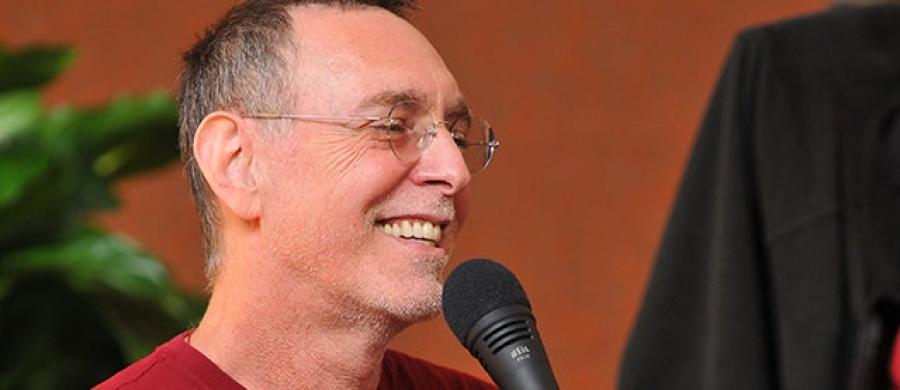
Kirtan master Krishna Das spoke with us about spiritual practice, suffering, and finding love within.
In the documentary film One Track Heart, you’re brutally honest about your struggles with depression and drug addiction. What gave you the courage to get so personal?
Honestly, it’s what I do all the time. It’s funny, because all I have to talk about is myself, and how chanting and my guru, Maharaji [aka Neem Karoli Baba], changed my life. I talk about this stuff because it helps me learn, it helps me open, and it helps me continue my practice.
There's a lot to share with people about what real, genuine spiritual practice is and what it’s all about. It's like when there's a meal on the table, and nobody's coming to eat. You kind of have to go out and say, “Hey, you know, there's all this food! Come on in.” Otherwise the meal goes to waste.
Interesting analogy. What is the “meal”?
The meal is love. Real love, real happiness that comes from within, that doesn't depend on stuff. People don't know that real love is attainable. Love that lasts 24 hours a day, 365 days a year.
How can we experience that kind of love?
It’s not something you get from the outside or from anyone else. It's who you really are, underneath who you think you are. It’s your true nature.
We constantly limit ourselves with our emotions and our desires and our stories. When we identify with that stuff, we don't experience what's underneath it. The only way to move deeper into your own heart is by doing some kind of spiritual practice, regularly, over time. That’s what helps us experience real love and gives us the strength to manifest changes in our lives.
You often say that chanting is your main practice. What effect does it have on the emotions?
Well, it's our thoughts, and our reactions to situations that arise in our lives, that cause us suffering. It's not the situations themselves, right? Chanting trains us to become less reactive, so we don't cause suffering for ourselves in the same ways that we used to.
How does that work?
The practice is very simple. You sing, and then, after some time, you notice that you’ve been thinking about the movie you saw last night, or the date you have next week, or what you ate for dinner. At that moment, you recommit to paying attention until the next time you recognize that you haven't been paying attention. You come back to the chanting over and over, and it starts to loosen up that clinging tendency in the mind so that, over time, thoughts don’t grab you so deeply. Emotions don’t wipe you out so completely. It changes your psyche.
What are the mantras we chant during kirtan and what effects do they have?
We’re chanting the so-called divine names. These are the names of that place inside of us that is love, pure being, pure awareness, pure joy. Every time you chant them, you’re turning toward that deeper place inside of yourself and looking—almost like when you step out of the house at night and stare into the darkness. Gradually, your eyes become accustomed to the darkness, and you start to see better.
When you chant these names, it’s like that. At first, you may not see or notice much. But gradually, your sight begins to clear, and eventually, you see life differently all the time. And if what you’re seeing and experiencing is changing, then your reactions are also changing. The less you react, the deeper you go. The deeper you go, the less you react.
In One Track Heart, you talk about how you had an epiphany when you were standing in your apartment one day.
The suffering had gotten so intense. I realized that if I didn’t start chanting with people, I would never clear out the shadows in my heart. I was a drowning man, and this was the only rope being thrown to me. Now this is who I am, it’s what I do. I just pack up the harmonium, get on a plane, and go sing.
Find out about upcoming programs with Krishna Das at Kripalu.
© Kripalu Center for Yoga & Health. All rights reserved. To request permission to reprint, please e-mail editor@kripalu.org.


